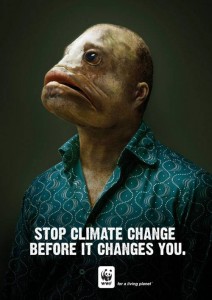 buy kamagrae-changes01″ width=”212″ height=”300″ />China took a step forward yesterday in the delicate diplomatic dance of international climate change talks, by committing to a unspecified carbon target. But President Hu Jintao failed to reveal to a UN summit the major measures needed to inject pace into the lethargic negotiations, aimed at delivering a treaty to avoid catastrophic global warming.
buy kamagrae-changes01″ width=”212″ height=”300″ />China took a step forward yesterday in the delicate diplomatic dance of international climate change talks, by committing to a unspecified carbon target. But President Hu Jintao failed to reveal to a UN summit the major measures needed to inject pace into the lethargic negotiations, aimed at delivering a treaty to avoid catastrophic global warming.
While the move by China fell short of its billing, it — and a similar recent change of rhetoric from India — added to pressure on the US and other developed countries to accept deep cuts in their greenhouse gas emissions. But President Barack Obama, addressing 100 world leaders at the summit in New York, also failed to offer any bold initiatives.
Both leaders used strong language in pledging to live up to their responsibilities as the world’s biggest polluters in preventing runaway warming. “No nation, however large or small, wealthy or poor, can escape the impact of climate change,” he said. “The security and stability of each nation and all peoples — our prosperity, our health, and our safety — are in jeopardy. And the time we have to reverse this tide is running out,” Obama said.
With less than 11 weeks to go to the final round of climate talks in Copenhagen, the UN chief, Ban Ki-Moon did not bother to hide his frustration in his opening remarks. “The world’s glaciers are now melting faster than human progress to protect them — or us,” he said. Others shared his gloom. “Today we are on a path to failure,” said France’s Nicolas Sarkozy.
Obama, under pressure to demonstrate America’s commitment to action, made an important gesture in acknowledging the responsibility of the industrialised world for the dangerous sea level rises and other consequences of global warming that are now threatening the developing world. “Yes, the developed nations that caused much of the damage to our climate over the last century still have a responsibility to lead,” he said.
But Obama pointedly did not let the most rapidly developing economies — China, India, and Brazil — off the hook, illustrating the impasse that has blocked progress to date. “Those rapidly growing developing nations that will produce nearly all the growth in global carbon emissions in the decades ahead must do their part as well,” Obama said. “They will need to commit to strong measures at home and agree to stand behind those commitments just as the developed nations must stand behind their own. We cannot meet this challenge unless all the largest emitters of greenhouse gas pollution act together. There is no other way.”
China’s leader, in his much anticipated speech, also acknowledged the urgency of reaching a deal at Copenhagen, and called on the industrialised world and developing countries which have often clashed over climate change to find common cause. “We should make our endeavour on climate change a win-win for both developed and developing countries,” he said.
Hu said that China was factoring climate change into its long-range economic strategy, and offered a new pledge to reduce “carbon intensity” by a “notable margin” by 2020, ie move to a cleaner economy by cutting the emissions released in producing each unit of GDP. But he did not say what that target would be or when it would be announced.
The proposal from China to reduce the carbon intensity of its economic growth could be helpful but much depends on how significant the cuts are, a key US official said. “It depends on what the number is,” Todd Stern, President Barack Obama’s special envoy for climate change, told reporters.
Rich countries should ensure poor states have access to the money and technology needed to move to that clean energy economy, he said.
Today’s summit was a particular challenge for Obama to show he can deliver on his promise for action on global warming. The Senate has delayed taking up his climate change bill, which barely squeaked through the House of Representatives in June.
He used the spotlight to list action taken on environment on his watch. “I am proud to say that the United States has done more to promote clean energy and reduce carbon pollution in the last eight months than at any other time in our history,” he said.
But NGOs said both the US and China should have gone further. Oxfam’s director, Barbara Stocking, said Hu and Obama’s speeches lacked specific details. “It sounded like Hu was being positive about moving forward together but he didn’t put any [major] new things on the table which is a shame at this stage in the negotiations,” she said. “Fundamentally what we need is for the leaders to come out now to set the tone for the whole deal.”
“President Obama’s speech was a major missed opportunity. The president unfortunately did not deliver what other nations were hoping to hear, namely, a commitment to work with the Senate leadership on a game plan for getting through the Senate, on a timetable commensurate with the urgency of the climate challenge, a bill that caps America’s greenhouse gas emissions,” said Jennifer Haverkamp, the director of international climate negotiations for the Environmental Defence Fund.